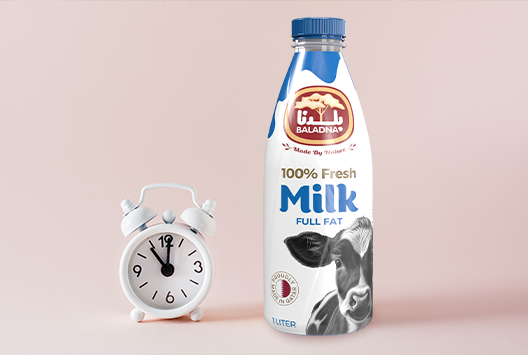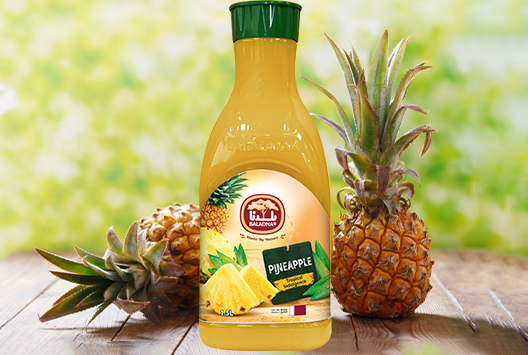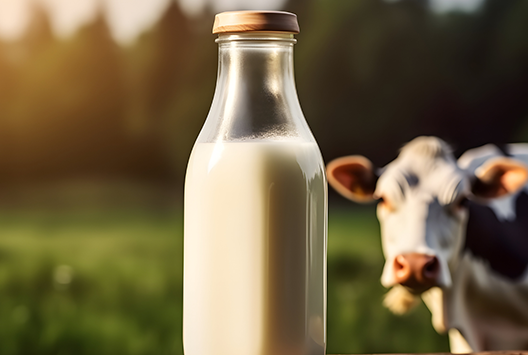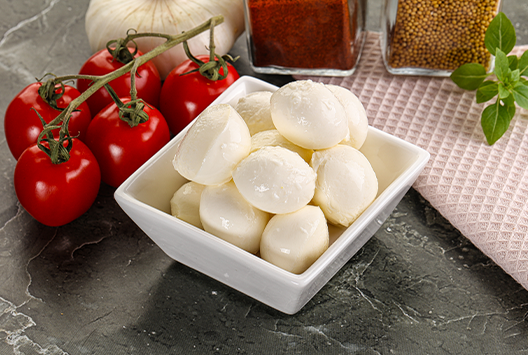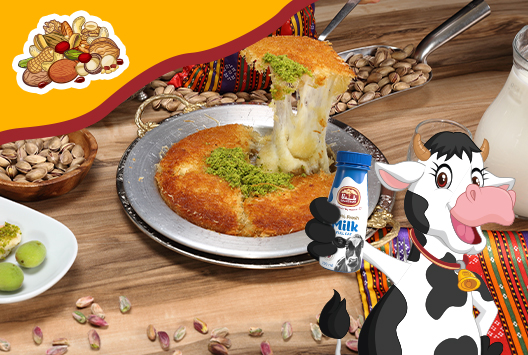
Bring Out The Child In You: Qatari-Inspired Dairy Desserts
Everybody loves diving into sweet indulgence, especially when it involves the nostalgic flavors of childhood desserts, but have you ever imagined re-creating those moments with a dash of Qatari tradition?
Well, it’s time to embark on a playful journey featuring Baladna’s dairy products. This is a world where cherished childhood memories meet the rich flavors of Baladna's dairy delights. Join us on a journey filled with delightful dessert recipes, and let your creativity run wild as you put these treats together.
Ready? Let’s go!
1. Sweet Dreamboats: Baladna Milk Pudding with Qatari Dates
Get ready to enjoy this Qatari-infused milk pudding, a soothing treat that captures the essence of traditional flavors. Create this dessert by combining Baladna's fresh milk, sugar, cornstarch, and a touch of rose water or orange blossom water. Finish it off with a sprinkle of soft dates and a drizzle of honey. With each spoonful of this creamy pudding, let yourself reminisce about Qatar's date palm trees and the playful moments of the past.
2. Cool Down and Crunch: Baladna Labneh and Berry Frozen Cups
Escape the Qatari heat with a cooling and nostalgic treat. These Baladna Labneh and Berry Frozen Cups are the perfect fusion of creamy labneh and frozen berries. Simply blend Baladna Labneh, your preferred berries, and a touch of honey or maple syrup for sweetness. Pour into cups, insert wooden sticks, and freeze. These frozen delights will remind you of the joy of sharing icy treats on sunny days.
3. Nutty Nirvana: Baladna Balaleet-inspired Bread Pudding
Explore a world of flavors with Baladna's Balaleet-inspired Bread Pudding. Start by soaking stale bread cubes in a mix of Baladna milk, fragrant spices like cardamom and cinnamon, and a touch of saffron-infused water. Layer the blend into a baking dish with nuts, raisins, and vermicelli. Place in the oven until golden and savor the blend of tradition and comforting memories in every bite.
4. Raise the Dough: Baladna Yoghurt Chapati S'mores
Why save s'mores just for camping? Try out this Baladna Yoghurt Chapati S'mores twist. Create soft chapati dough using Baladna yoghurt and flour, then cook until golden. After cooling, make a sandwich with your preferred chocolate and marshmallows. Bake until the ingredients meld together, creating a delightful treat. This creative take on s'mores is sure to become a cherished choice in your home.
Every bite is a taste of nostalgia
As you embark on this dessert journey, enjoy the taste of nostalgia in every bite. These delicious treats celebrate the connection between Baladna dairy, nostalgic flavors, and Qatari culture. It’s time to indulge, taste, and let the sweetness of Baladna dairy elevate your dessert experience. Shop our products today and experience the distinctive flavor first-hand.

